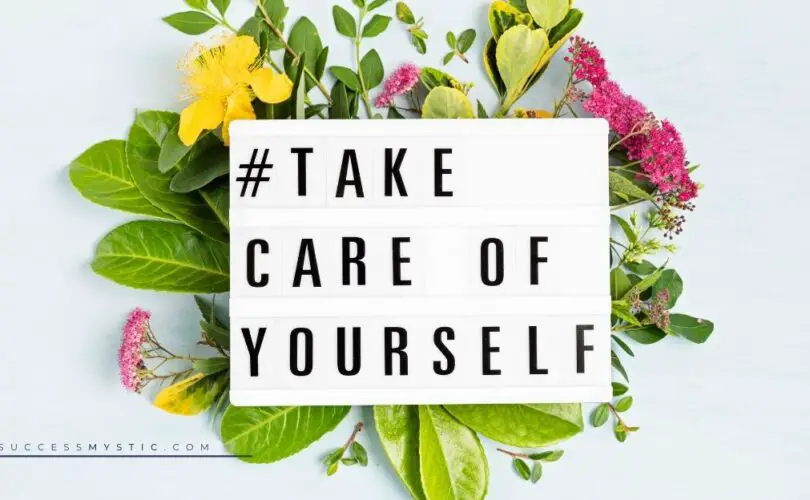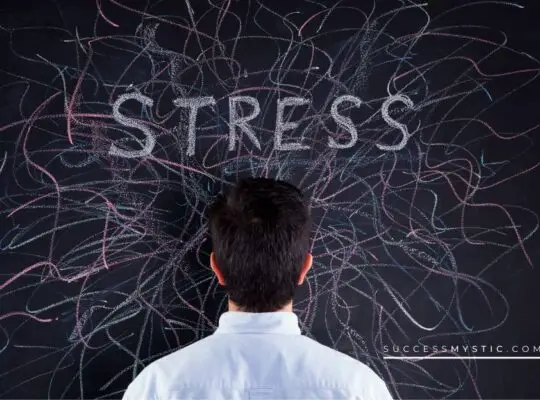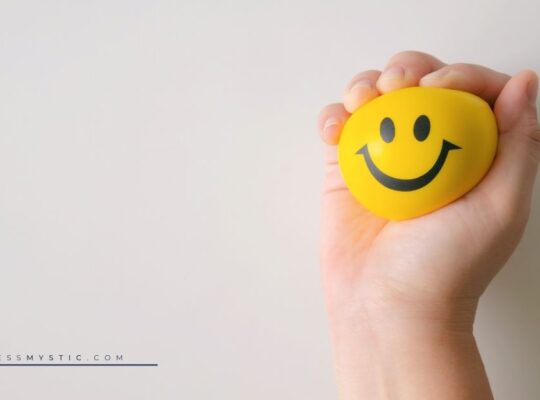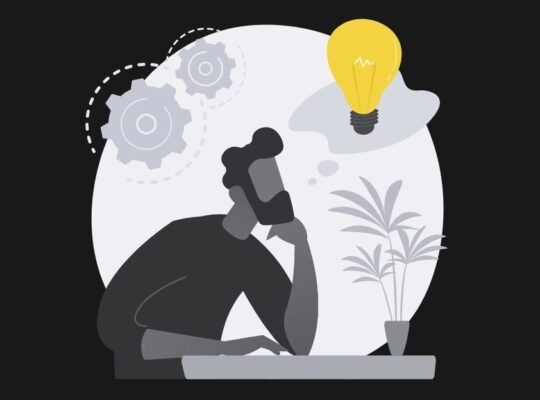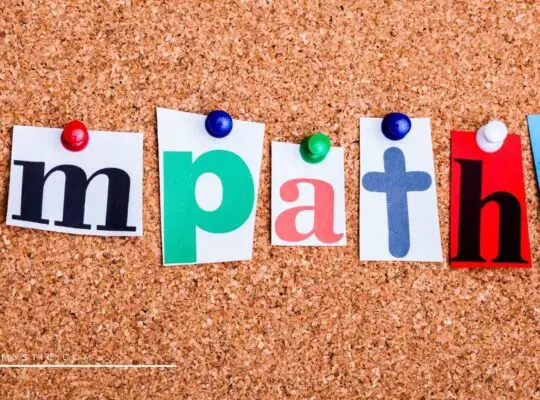What Are Life Skills
The World Health Organization has defined life skills as “those abilities for adaptive and positive behavior that enable individuals to deal effectively with the demand and changes of everyday life.” essentially, these are the skills that help promote mental well-being and competency as well as those skills that allow for optimal functioning and adaptivity (Module VII Life Skills, 2020).
Similarly, UNICEF defines life skills as “behavior changes or behavior development approaches that are designed to address a balance of 3 primary areas: knowledge, attitude, and skills.” This definition is based on research that suggests that shifts in risk behavior are less likely to occur if knowledge, attitudinal, and skills-based competency are not addressed (Module VII Life Skills, 2020).
Based on these two definitions, one can gather that life skills are basically those skills that promote the mental, emotional, and physical well-being and competence of individuals as they navigate the realities of day to day life. Solidifying life skills promotes overall health and positive social relationships.
The skills that one deems as necessary to enable people to effectively deal with the demands and changes of daily life or those that promote mental, emotional and physical well-being can vary from person to person. However, UNICEF, UNESCO and the WHO list the ten core life skill strategies and techniques as follows: problem-solving, critical thinking, effective communication skills, decision-making, creative thinking, interpersonal relationship skills, self-awareness building skills, empathy, and coping with stress and emotions (Module VII Life Skills, 2020).
This article seeks to explore each of these core life skills and explain their significance and importance as related to the key areas of knowledge, attitude, and skills, as well as the key areas of mental, emotional, and physical well-being.
Life Skills Explained
1| Problem-solving
Problem-solving can be defined as the process of identifying a problem, developing possible solution paths, and taking the appropriate course of action (CCMIT, n.d.). Problem-solving is an essential life skill because in life we are faced with problems dozens of times a day. Problems, both small and large arise regularly and our ability or inability to cope with and solve those problems impacts our overall success and survivability.
In order to effectively solve problems we are faced with, we must follow a basic formula whereby we first identify the problem, then generate possible solutions, then evaluate and select the proper solution, followed by implementing the selected solution (MindTools, n.d.).
Defining the problem is a necessary element of strong problem-solving skills because it ensures the root cause is being addressed, as opposed to treating a surface-level symptom. Implementing a process such as a Root Cause Analysis (RCA) can assist with this because it works to determine what happened, why it happened, and what can be done to reduce the likelihood of or prevent it from happening again (MindTools, n.d.).
Additionally, the process of defining the problem should be one that includes a wide array of perspectives to again ensure the real issue is identified. Systems and engineering professor Peter Checkland developed a problem-solving Soft System Methodology (SSM) in the 1960s to do just that.
This is known as the CATWOE, a mnemonic that provides a checklist of elements to look at which may contribute to a problem. The mnemonic stands for, customers, actors, transformation process, world view, owner, and environmental constraints (Free Management Books, 2017).
With the problem correctly defined, the stage is set for possible solutions to be generated, solutions to be thoroughly evaluated, and for a final solution to be selected and implemented. This then allows us to better cope and deal with the issues that arise in our day to day lives.
2| Critical Thinking
Critical thinking is the analysis and evaluation of an issue in order to form a judgment. Critical thinking requires us to interpret, analyze, evaluate, explain, and draw warranted inferences about what to believe and what to do in a stream of novel and, too often, time-limited or high-stakes, uncertain situations (Insight Assessment, 2020).
Critical thinking is such a vital life skill because it is the foundation of problem-solving. One cannot get to the place of identifying, let alone solving a problem without an ability to thoroughly analyze and assess information and data. Thus, developing critical thinking skills is key to one’s ability to survive and thrive in society (Insight Assessment, 2020).
Research has demonstrated that strengths in critical thinking correlate to academic and workplace success, as well a personal success. A 2017 study by Butler, Pentoney, & Tong showed that while raw intelligence does account for certain life success, critical thinking skills serve as a more accurate predictor of one’s ability to make positive life decisions
The study showed that people with greater critical thinking skills had fewer negative life events than people who possessed a high degree of intellect (Butler et. al.; 2017).
On the other hand, weak critical thinking skills pose serious risks for individuals, as they are more likely to make costly mistakes, repeat errors, make bad decisions, and remain inactive in situations that require action. These errors can then lead to outcomes such as loss of opportunities, damaging relationships, depletion of financial resources, and even loss of life in extreme cases (Insight Assessment, 2020).
Thus critical thinking becomes a necessity so that individuals are able to sort through information that is presented, question information and situations that are questionable, and make sound decisions about personal and civic matters (Oliver & Utermohlen, 1995).
3| Effective Communication
Communication is the ability to effectively convey information to others. This can be done via verbal, nonverbal, and written formats. Communication is seen as an essential life skill because it impacts so many other areas of our lives.
Research shows the link between communication and a person’s ability to contribute to and function in society. A study published by ERIC Digests noted that the ability to verbally communicating, especially in a public setting, serves as the primary means for a person to participate in public life (ERIC Digest, n.d.).
There also seems to be a connection between communication and success. A study published in the American Journal of Small Business found that small business owners and bank loan representatives reported that one of the key factors contributing to their business success was communication and listening (Montagno et. al., 1985).
It was noted that strong communication skills distinguished skilled and competent business owners and bank loan representatives from newer and less informed business owners and representatives. Additionally, they were better able to convey the necessary information to make sales and close deals with clients and customers (Hare, 2016).
Research presented at the Annual International Conference of the National Community College Chair Academy in Phoenix, AZ pointed to the link between the ability to communicate and the ability to accomplish goals. The researchers noted that there are skills developed during the process of communicating with others, such as interpersonal and intergroup skills, that can be applied to various educational and business scenarios.
Those who had a more firm grasp on communication tended to be better and quicker at reaching goals. This is likely due to the ability to convey ideas with others and get to the processes of problem-solving and critical thinking (Values, Vision, Voice, Virtue: The 4 “V” Model for Ethical Leadership Development, n.d.).
There is additional evidence that examines the link between communication and performance. Watson Wyatt developed a 2009/2010 communication survey which showed that companies that communicate effectively had a 47% higher return to shareholders over a five year period, from mid-2004 to mid-2009. He defined clear communication within 3 categories- courage, innovation, and discipline.
Wyatt stated that the way communication played into the companies’ success within these 3 categories is that “effective communicators have the courage to talk about what employees want to hear,” “redefine the employment deal based on changing business conditions,” and have “the discipline to plan effectively and measure their progress effectively (Baldoni, 2009).
4| Decision-Making
Simply put, decision-making skills are the ability to choose a specific course of action given more than one option. Decision making is a life skill because on a daily basis people are faced with numerous situations where they are presented various options.
The ability to choose the best and/or most logical option can be the difference between success and failure and even life and death in certain situations. Decision-making, as previously stated is a critical part of the problem-solving process, thus an inability to make and implement decisions prohibits the problem-solving process from being complete. But this is just one of the areas that decision-making impacts, either negatively or positively.
Kullabs outlines several key areas that decision-making drastically impacts, the first of those areas being the achievement of goals and objectives. When a good decision, made based on the careful analysis of the situation, is made and then implemented in a timely fashion then goals are able to be met.
However, an inability to make a decision, making the wrong decision, or failing to implement a decision in a timely manner are 3 of the primary scenarios that lead to breakdown and dysfunction (Kullabs, n.d.).
Decision-making also plays a role in the area of motivation. When a decision is made, it serves as fuel and guidance for those following that decision. A decision denotes direction. When you know what to do, you can get on board with taking the necessary action to ensure it gets done.
Without a decision, motivation lacks because there is a general sense of confusion and a lack of clarity. It is hard to get excited about something when you don’t know exactly what there is to get excited about (Kullabs, n.d.).
Another area where decision-making plays an important part is with regard to resources. Proper and timely decision-making means efficient use of resources such as money, manpower, market, machinery, and information. Good decision-making ensures these resources are used without waste, thus the impacted entity is minimally impacted (Kullabs, n.d.).
5| Creative Thinking
Creative thinking, according to the business dictionary, is a means of looking at problems or situations from a fresh perspective that suggests unorthodox solutions (which may look unsettling at first). Creativity, much like other areas examined in this report, is interlinked with several other listed life skills. Thus, its use and function are essential for us to thrive in other areas.
Creativity and problem solving seem to go hand in hand. Creativity allows individuals to approach problems from all angles, rather than from just a linear and logical approach. Such an approach often leads to breakthroughs, as creative thinkers often develop new processes and solutions because of their ability to go against the grain (The Creativity Workshop, 2020).
Researchers have also pointed out the necessity of creativity in order to participate in and contribute to the modern world. Eighty-two percent of executives surveyed by Forrester agree that companies benefit from creativity. Among those benefits include increased revenue and greater market share.
It’s why 58 percent of respondents said they set goals around creative outcomes, and why another 48 percent claim to fund new ideas spun out of creative brainstorming (Landry, 2017).
Additionally, some of the largest and most successful businesses in the world practice the 20% rule, whereby they encourage employees to set aside 20% of their work time to exploring new ideas and thinking creatively (The Creativity Workshop, 2020).
Creativity has even been tied to life expectancy. Research published in Scientific American found that creativity, not intelligence, was linked to a decreased risk of mortality. On one hand, creativity allows people to be flexible and adapt when faced with challenges and changes within their environment.
This means, they have the ability to adjust as needed in order to continue thriving, which increases survival outcomes. On the other hand, activities associated with creativity such as participating in art or music have been shown to reduce stress, decrease negative emotions, and improve medical outcomes. Thus, being creative indirectly impacts life expectancy for the better as well (The Creativity Workshop, 2020).
6| Relationships And Interpersonal Skills
Interpersonal skills are essentially those skills we use when we communicate and collaborate effectively with others. Such skills can include active listening, empathy, diplomacy, and collaboration, among several others.
Interpersonal skills are essential life skills because they transmute and transpose across every area of our lives. These skills allow us to better communicate with and relate to other people we encounter in our daily lives.
We can use interpersonal skills to help us build community and relationships with others in a way that benefits our lives and theirs, as well as allowing us to interact in an easier and better way (Terrell, 2019). Thus, having strong interpersonal skills can be a huge benefit to us in our lives.
One way interpersonal skills can prove to be an asset is with regard to fostering and maintaining personal relationships, especially as it pertains to building trust. Via aspects of interpersonal skills such as exercising empathy, transparency, and active listening, those we encounter begin to view us as consistent, caring, and reliable.
This then works to build trust which can be an asset in both personal and professional relationships (Phillpott, 2017). Interpersonal skills can also help foster and maintain personal relationships by making you more relatable to others.
Again, by implementing practices such as empathy and active listening, others become more comfortable and see you as an individual they can relate to on a personal level and subsequently connect with (Phillpot, 2017).
Research seems to suggest that now more than ever, interpersonal skills are a necessity to not only function but to even get into the professional world. A survey conducted by Workforce Solutions Group found that more than 60% of employers complained about applicants not possessing sufficient communication and interpersonal skills, which they considered a necessary soft skill for the roles they were trying to fill (Leung 2016). This seems to be for 3 primary reasons- First, customer service holds a lot of significance.
Employees with strong interpersonal skills are able to offer customers value that they might not get elsewhere and that increases customer loyalty and retention. This is especially significant when one considers the fact that repeat customers are worth up to 10 times the cost of their first purchase. This equals huge numbers for businesses (Leung, 2016).
Second, customers are more willing to do business with people they like. Data shows that 98% of the top salespeople identify relationships as the most significant factor in generating new business. Interpersonal skills help businesses retain existing customers and generate leads that lead to new customers by allowing for the development of a relationship that creates value and builds trust.
By sharing content and information with customers whereby their lives are made better or easier, trust and credibility are established and that helps first-time customers become life-long customers (Glidden, 2019).
Third, hard skills are being handled more and more by machines and computers. As technology continues to advance and more and more jobs become obsolete, soft skills such as interpersonal skills become the only or main way to differentiate yourself in a crowded workplace.
Some business forecasting predicts that the job market in the near future will only consist of those who know how to design and operate automated systems and those with the creative and interpersonal skills to deal directly with the customer base (Leaung, 2016).
7| Self-Awareness
Self-awareness can be defined as alertness about the unique thoughts, experiences, and abilities that create our identity. Psychologists Shelley Duval and Robert Wicklund developed the theory of self-awareness in 1972 which stated, “When we focus our attention on ourselves, we evaluate and compare our current behavior to our internal standards and values. We become self-conscious as objective evaluators of ourselves.” Psychologist Daniel Goleman went on to define self-awareness as “knowing one’s internal states, preference, resources, and intuitions,” in his book Emotional Intelligence (Zhu, 2019).
Combining all of those perspectives, one can say that self-awareness is both the knowledge of self and the way in which we notice and monitor the world around us, and self-awareness plays a larger role than many people realize.
For one thing, self-awareness is the key cornerstone facet of emotional intelligence, as noted by Daniel Goleman. It is our ability to monitor our emotions and thoughts that are essential to better understanding ourselves and finding harmony with who we are.
A 2016 investigation by Sutton also examined the component parts of self-awareness and their benefits. This study found that the self-reflection, insight, and mindfulness aspects of self-awareness can lead to benefits such as becoming a more accepting person, while the rumination and mindfulness aspects can lead to emotional burdens (Zhu, 2019).
Self-awareness also appears to be linked to success. A study conducted by Green Peak Partners and Cornell University studies 72 executives are both private and public companies. Each company had revenue in an amount between $50 million to $5 billion. The study found that a high self-awareness score was the strongest predictor of overall success among these participants (American Management Association, 2019).
8| Empathy
Empathy is the ability to understand another person’s feelings and to consider another person’s perspective. There are two primary facets of empathy- affective empath and cognitive empathy. Affective empathy relates to the ability to share the emotions of others. On the other hand, cognitive empathy is the ability to understand the emotions of others. From both a personal and professional perspective empathy is an essential skill and is linked to other life skills noted in this report (Molenberghs, 2017).
Since empathy allows us to understand how others are feeling so that we can respond in an appropriate manner, it is a key component of interpersonal skills. Practicing empathy aids in the ability to relate more to others.
When we are in tune with our own emotions, we can relate to other people’s emotional reality more readily and effectively. This is especially significant in settings where there is diversity among individuals (Molenberghs, 2017).
Research also ties empathy to learning and problem solving, as empathy is a critical part of social and emotional learning (SEL). Evidence shows that SEL is essential to helping individuals navigate problems and challenges that may arise in their personal, professional, or even academic lives. Since empathy drives thoughtful problem solving, as it allows the empath to put themselves in other people’s shoes to solve a consumer or client need.
A 2013 research report states that SEL ‘involves the processes through which children and adults acquire and effectively apply the knowledge, attitudes, and skills necessary to understand and manage emotions, set and achieve positive goals, feel and show empathy for others, establish and maintain positive relationships, and make responsible decisions’.
Employers also recognize this, with one study ranking empathy as the fifth most important people skill needed to succeed in the workplace (Melbourne Child Psychology & School Psychology Services, 2017).
9| Coping with Stress
Stress is a state of mental or emotional strain in response to adverse or demanding circumstances. Coping with stress is a means of utilizing various mechanisms to master, minimize or tolerate the stressor(s) one encounters. Again, the ability to cope with stress can prove to be useful with regards to other life skills such as problem-solving critical thinking, and decision making.
This can be seen in research that evaluates the relationship between stress and motivation and productivity. While there is a measure of stress that can be tolerated and even beneficial in motivating individuals, there is a point where stress can move beyond a helpful level and the inability to cope can lead to decreased concentration, poor analytical skills, and decreased productivity. This was most notably outlined in Maslow’s Hierarchy of Needs which took a needs-based approach to motivation.
According to Maslow, people are motivated by unsatisfied needs. The lower-level needs such as physiological and safety needs have to be satisfied before higher-level needs can be addressed. However, when a person gets overstressed, the energy that would otherwise be used for motivational management is shifted to managing stress.
The person no longer feels capable of dealing with basic physiological needs, because the focus of the stress takes immediate precedence and the motivational energy is focused on the stressor (Lumen, 2020).
10| Managing Emotions
Managing emotions is the final life skill outlined by UNICEF, UNESCO, and WHO, but it holds just as much significance as the other outlined skills. The ability to regulate emotions is a key component of emotional intelligence, and emotional intelligence can be valuable when it comes to forming interpersonal relationships, communicating, and problem-solving.
Psychologist Victor Johnson points out that emotions boost various signals in our minds and draw our attention to certain events and away from others. Essentially out emotions become magnets that draw our attention to whatever our emotional enegy is focused on. Thus, awareness and regulation of our emotions are central to the productive use of our attention (Batista, 2015).
It then makes sense that our performance is also linked to our ability to manage our emotions. In one study, teachers with a greater ability to control their emotions tended to perform better in their roles (Mohamad & Jais, 2016). A 2017 study by Pekaar and associates revealed that there was a high correlation between job performance and the ability to control and regulate emotions.
Ultimately, each of these life skills proves to be significant in our ability to navigate the world and care for ourselves. Significant deficits in any of these areas pose serious risks to our physical, mental, and emotional health.
We should aim to be strong in each of these crucial areas so that we can navigate situations in our environments with efficiency and accuracy so that we can experience optimal outcomes.
References
American Management Association. (2019, January 24). New Study Shows Nice Guys Finish First. Retrieved from
Baldoni, J. (2009, November 19). New Study: How Communication Drives Performance. Retrieved from
Batista, E. (2015, February 2). To Stay Focused, Manage Your Emotions. Retrieved from
Butler, H. A., Pentoney, C., & Bong, M. P. (2017). Predicting real-world outcomes: Critical thinking ability is a better predictor of life decisions than intelligence. Thinking Skills and Creativity, 25, 38-46. doi:10.1016/j.tsc.2017.06.005
CCMIT. (n.d.). Introduction to Problem Solving Skills. Retrieved from
ERIC Digest. (n.d.).The Connections between Language Education and Civic Education. Retrieved from
Free Management Books. (2017, February 9). CATWOE Analysis. Retrieved from
Glidden, J. (2019, August 7). Four Surprising Social Selling Stats That Might Change Your Sales Strategy. Retrieved from
Hare, D. (2016, September 20). The Importance of Communication Skills [Top 10 Studies]. Retrieved from
Insight Assessment. (2020, January 23). Why Everyone Needs Critical Thinking. Retrieved from
Kullabs. (n.d.). Concept, Importance and Step of Decision Making. Retrieved from
Leung, S. (2016, June 29). Why Interpersonal Communication Skills Matter More in Business than Intelligence. Retrieved from
Lumen. (2020). Coping with and Managing Stress | Boundless Psychology. Retrieved from
Melbourne Child Psychology & School Psychology Services. (2017, April 30). Why We Need Empathy, and How We Teach it to Children. Retrieved from
MindTools. (n.d.). What Is Problem Solving? Retrieved from
Module VII Life Skills. (2020). Retrieved from
Molenberghs, P. (2017, January 8). Understanding others’ feelings: what is empathy and why do we need it? Retrieved from
Montagno, R. V., Kuratko, D. F., & Scarcella, J. H. (1985). Perception of Entrepreneurial Success Characteristics. American Journal of Small Business, 10(3), 25-32. doi:10.1177/104225878501000303
Oliver, H. & Utermohlen, R. (1995). An innovative teaching strategy: Using critical thinking to give students a guide to the future. (Eric Document Reproduction Services No. 389 702)
Phillpott, S. (2017, January 10). The Importance of Interpersonal Skills in the Workplace. Retrieved from
Terrell, S. (2019, January 4). What Are Interpersonal Skills and Why Are They So Important? Retrieved from
The Creativity Workshop. (2020). What is Creativity? The Importance of Creativity in Life. Retrieved from
Values, Vision, Voice, Virtue: The 4 “V” Model for Ethical Leadership Development., 1996-Feb. (n.d.). Retrieved from
Zhu, J. (2019, August 31). What is Self-Awareness and Why is it Important? [+5 Ways to Increase It]. Retrieved from

